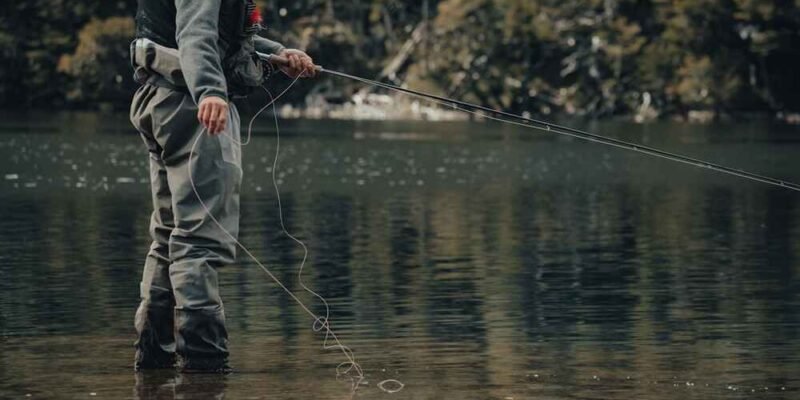Fly fishing is an exciting and rewarding sport that has captivated anglers for years. This type of fishing is different from traditional methods since it captures fish using an artificial fly. Although the world of fly fishing can appear complicated at first, everyone, including beginners, can learn how to improve their technique and enjoy the sport to the fullest with the proper guidance and a little practice. Fly fishing offers numerous opportunities to interact with nature while developing talent in quiet streams or fast-flowing rivers.
Understanding the Basics of Fly Fishing
Understanding the foundations of fly fishing is critical before venturing onto the waters. Fly fishing casts the fly using the weight of the line, unlike conventional fishing, which usually employs a heavy sinker to weigh down the bait. This calls for a distinct kind of casting method, sometimes referred to as the fly cast. It calls for a lightweight fly rod and a unique fly line to carry the fly to the target region. The secret to catching fish with fly fishing is knowing casting techniques. Learning good casting techniques will help anglers reach areas where fish are more likely to be, including under hanging branches or along rocks.
Mastering the Casting Technique
Mastering the casting technique is one of the most challenging aspects of fly fishing for beginners. Unlike traditional fishing, where casting involves a simple overhand motion, fly fishing requires a more delicate and controlled action. The fly cast involves several key elements, including the back cast, forward cast, and the drift of the fly. It’s essential to practice the timing and rhythm of these motions, as they directly affect the accuracy and distance of the cast. The back cast is when the fly line is thrown backward, and the forward cast follows by propelling the line forward. Beginners should also avoid mistakes such as false casting, where the line is cast back and forth without delivering the fly to the target.
Knowing Where to Fish
Knowing where to fish will assist one in improving their fly-fishing skills. Fish congregate in areas dependent on water temperature, current conditions, and availability of food. One of the best places for beginners is near streams or rivers known for their abundance of fish. You can easily search many fishing access Bozeman spots, where anglers can enjoy a variety of fishing environments. Investigate the streams being fished and look for signs of fish activity, such as jumping or rising fish. Observations of the water and its surroundings, especially in the early morning or evening when fish are most active, can provide important clues about where fish are hiding. Beginners should also consider the type of insects in their surroundings since this will allow them to choose the suitable fly to fit the fish’s feeding pattern.
Practicing Patience and Persistence
Fly fishing is not a fast-paced sport. Therefore, beginners need to learn to be patient and persistent. Unlike other fishing methods that could produce instant results, fly fishing usually needs fishermen to wait for the ideal moment when trout are actively feeding. This could call for protracted monitoring, casting, and waiting for bites. Should the fish not bite right away, avoiding becoming demoralized is crucial. Instead, concentrate on improving methods and growing from every fishing trip. Fly fishing offers a chance to appreciate the serenity and quiet of the natural world, even in cases when fish are not biting. With time and regular practice, beginners will see changes in their casting, presentation, and general success.
Staying Prepared and Ready for Challenges
Fly fishing can present unexpected challenges, such as changing weather or difficult water conditions. Beginners should always be prepared by bringing extra flies, tools, and changed clothes. The weather can alter fish behavior, so be adaptable. If the weather becomes windy or gloomy, the fly selection or casting method must be adjusted to suit the situation. Maintaining composure and being prepared for these challenges will allow newbie fly fishermen to remain confident and improve their technique. Becoming a proficient fly angler depends mostly on overcoming challenges related to negotiating challenging terrain or dealing with equipment defects.
Conclusion
Fly fishing is an exciting experience for those ready to devote time and effort to learning the technique. The road to success for novices includes knowledge of the fundamentals, equipment selection, casting technique mastery, and fish behavior. Beginners can enjoy the several benefits of fly fishing with a persistent and patient approach. Every fishing excursion offers a chance to develop abilities, deepen knowledge of the game, and connect with the surroundings. Anyone can enjoy the thrill of fly fishing and raise their possibility of catching more fish using the correct methods and mentality.












